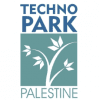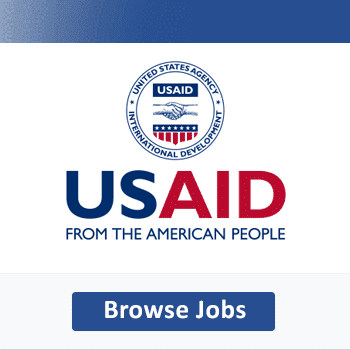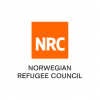Barrier Study on Inclusion Standards in Emergency Humanitari...
Term of Reference
Barrier Study on Inclusion Standards in Emergency Humanitarian Response in occupied Palestine Territory (oPt)
About Humanity & Inclusion
Created in 1982, Humanity & Inclusion (HI) is an independent and impartial international aid organization working in situations of poverty and exclusion, conflict and disaster. Working alongside people with disabilities and other vulnerable groups, our actions are focused on responding to their essential needs, improving their living conditions and promoting respect for their dignity and their fundamental rights.
HI has been operating in occupied Palestinian territory (oPt) since 1996, currently with three offices: in Gaza, in the West Bank and in East Jerusalem, to meet the multiple needs of the Palestinians. Today, HI responds to these needs in different essential service sectors: inclusive education, physical and functional rehabilitation, disaster preparedness and risk reduction, explosive ordnance risk education, with accessibility and inclusive humanitarian action as complementary service sectors. Benefiting from a long-established presence in oPt, HI maintains ongoing engagement with key stakeholders – including ministries and humanitarian architecture - and support for people with disabilities and other vulnerable groups in West Bank and Gaza valued by local communities. In the oPt, HI collaborates mainly with a series of national and local actors within the framework of partnerships. HI also collaborates with International Non-Governmental Organizations (INGOs) in the framework of consortia and engages with local authorities where appropriate.
Background and Context:
Since October 2023, the situation in the Gaza Strip and the West Bank has been deteriorating due to a significant escalation in hostilities. According to OCHA, nearly 2 million Palestinians have been displaced and over 39,000 people have been killed since 7th of October 2023, including 14,100 children. The current precise number of people with disabilities is unknown, but prior to 7 October, 21% of households in Gaza had at least one member with a disability, they are considered more vulnerable to the impact of conflicts because they face greater barriers to accessing safety and humanitarian assistance than many others. People with disabilities face higher protection risks and are more likely to be exposed to death and injuries in insecure areas because they face more physical or cognitive challenges when identifying or fleeing attacks. They also face barriers to accessing information, distributions, food and shelter, health, WASH and protection services due to the various barriers and the lack of inclusive humanitarian assistance.
Throughout 2023 to now, a significant escalation in violence including heightened tension, increased settler violence and demolition of structures has been witnessed in West Bank. There has been an increase in displacement and significant loss of livelihoods, as well as tightened restrictions on access and movement of many Palestinian communities. Key infrastructure including roads, schools, rehabilitation centers, health care facilities were also being damaged by the Israeli force. People with disabilities and other vulnerable groups had difficulty accessing essential services due to movement restrictions, security checks, and harassment, intimidation, and violence on their way. These movement restrictions and violent incidents not only lead to people not receiving the services they need but also significantly impact their mental health.
Moreover, the lack of quality data on the prevalence of disability, the protection risks faced by people with disabilities, and their specific needs in contexts of conflict and large-scale population displacements poses a significant barrier to inclusive planning and response. This gap hinders efforts to account for the needs of people with disabilities. With the funding from The Belgian Directorate General for Development Cooperation and Humanitarian Aid, HI is implementing a 2-year project to improve the protection of vulnerable populations affected by current, imminent or future humanitarian crises between 2023 - 2025. Inclusion is one of the key themes of this project that will be integrated into all project activities. Under the project HI aims to address this issue by producing high-quality data and promoting inclusive, evidence-based humanitarian planning through studies on the needs of persons with disabilities in Gaza and access barriers to emergency responses and education in the West Bank. The study will not only be shared with humanitarian actors and coordination mechanisms but will also guide humanitarian actions, relevant clusters, build the capacity of local (notably DPOs) and international actors, and support advocacy efforts.
Overall Objective of the studies
In the West Bank, the barrier study aims to enhance and strengthen emergency response planning and response, particularly for girls and boys with disabilities and their families who are at risk of being left out, by identifying the barriers and facilitators to accessing to general protection and educational services.
In Gaza, HI plans to conduct a needs assessment to identify and analyse the specific needs and challenges faced by persons with disabilities in Gaza, especially children with disabilities, with a focus on Shelter, Food, WASH, and Health. This assessment aims to gather comprehensive data on their access to humanitarian goods and services and overall well-being. The findings will inform inclusive, evidence-based humanitarian planning and response, ensuring that the rights and needs of adults and children with disabilities are adequately addressed in ongoing and future interventions .
Specific objectives:
In West Bank:
• To identify practices and gaps in the inclusion of girls and boys with disabilities, as well as households with children with disabilities, in accessing school or community-based emergency response mechanisms in Jenin, Nablus, Tulkarem, and Tubas.
• Identify the specific protection risks faced by girls and boys with different types of disabilities during emergency and conflict situation.
• Identify the specific barriers that prevent access to school or community-based emergency response mechanism and education services, along with potential facilitators / enablers that would enable access to the mentioned services.
• Identify the perceptions of various stakeholders, including community members, families, service providers, and humanitarian actors, regarding disability and how these perceptions impact access to school or community-based emergency response mechanisms and education services.
• Identify access to information, school and/or community-based mechanisms including child protection and emergency preparedness and response plans
• Formulate action recommendations for the inclusion of girls and boys with disabilities, as well of household of children with disabilities in emergency response and education. In Gaza:
• Develop methodology and tools including qualitative data collection and quantitative data collection for a need assessment of persons with disabilities in shelter, food, health and WASH both in collective shelters and informal shelters where the team can access.
• Ensure tools and methodologies developed are flexible to accommodate the changing context
• Train HI Gaza team / data collectors (community-based agents) on the tools so the team can conduct the assessment when security situation allows.
Scope of the work:
1. Development of Methodology and Tools
• Lead the creation of research methodologies and tools tailored for the West Bank context.
• Develop qualitative and quantitative data collection instruments for assessing the needs of persons with disabilities in Gaza Strip.
• Review existing secondary data to identify gaps and inform the development of new tools.
2. Training and Capacity Building:
• Train HI Gaza team and MEAL/IM (including data collectors) in Gaza on the developed assessment tools to enable them to conduct the needs assessment when the security situation allows.
• PS : the training for the HI Team will be for Gaza Team but in the WB the SERVICE PROVIDER / consultant will be the main responsible in data collection but the tool and the survey and assessments should have to be approved by the MEAL Team since the SP will use the HI Server “ HI Servey CTO
3. Data Collection and Analysis:
• Oversee and lead the data collection process in the West Bank, including conducting Key Informant Interviews (KIIs) and Focus Group Discussions (FGDs) in Arabic with the logistic and administrative support of HI WB team.
• Ensure accurate and ethical data collection practices, adhering to HI’s standards and guidelines.
• Analyse collected data to identify barriers and facilitators to accessing emergency response and education services for children with disabilities and household of children with disabilities.
4. Stakeholder Engagement (in West Bank):
• Engage with various stakeholders, including community members, families, service providers, and humanitarian actors, OPDs to understand their perceptions of disability and its impact on service access.
• Facilitate discussions and workshops to gather insights and validate findings.
5. Reporting and Recommendations:
• Compile and synthesize data into comprehensive reports with actionable recommendations.
• Develop and present findings to HI both in English and Arabic
6. Leading Dissemination workshops on key results, lessons learnt and recommendations.
Deliverables:
1. Research Methodology and Tools:
• A detailed research methodology document tailored for the West Bank context.
• Qualitative and quantitative data collection tools for the Gaza needs assessment.
2. Desk Review Report:
A comprehensive desk review of existing data about people with disabilities in the West Bank and Gaza.
3. Training Materials and Sessions:
• Training materials for the HI Gaza team on data collection tools and methodologies.
• Completion of training sessions for HI staff in Gaza.
4. Data Collection Reports:
• Reports on the data collected from KIIs and FGDs in the West Bank.
• Analysis of the data highlighting key barriers and facilitators to accessing humanitarian services.
5. Final Report and Recommendations:
• A final report summarizing the findings of the barrier study.
• Practical recommendations for enhancing the inclusion of people with disabilities in humanitarian planning and response.
• A dissemination workshop will take place in WB for the organisations and stakeholders who are working in Gaza can join the workshop online the second one will for Gaza only and this will be in a coordination with HI Gaza Team
Location, Dates, and Duration
The study is expected to be conducted between October – November 2024.
Qualifications and Experience
• Advanced degree in Humanitarian Action/ Social Work/Development studies or social fields (anthropology, psychosocial, sociology, protection) and disability studies is an asset 5 years’ experience in disability work in emergency contexts with I/NGOs, a minimum of 3 years in the Occupied Palestinian Territory (oPt) with a remote access to Gaza strip
• Having a team in Gaza to support the contractor in the data collection is an asset
• Good knowledge of gender and other vulnerability factors, preferably in emergency contexts
• A deep knowledge of rights-based approaches, disability data collection and disability inclusion
• Excellent verbal and writing skills in English
• Experience in training enumerators
• Strong facilitation skills and proficiency in Arabic
• Experience working with persons with disabilities and Organization of Persons with disabilities is an advance
Selection Process
A competitive selection process will take place taking into consideration the entire offers including CV, relevant studies, technical and financial aspects.
Required documents:
• A cover letter outlining relevant experience and suitability for the role
• An updated CV, including details of previous experiences
• Proposed research methodology
• Financial offer for the study (price including taxes, the validity of the offer, terms of payment, payment modality, etc).
Deadline:
• The last date for sending the offers is the 14th of Sept 2024
• The offers should be shared at the following email: [email protected]






















